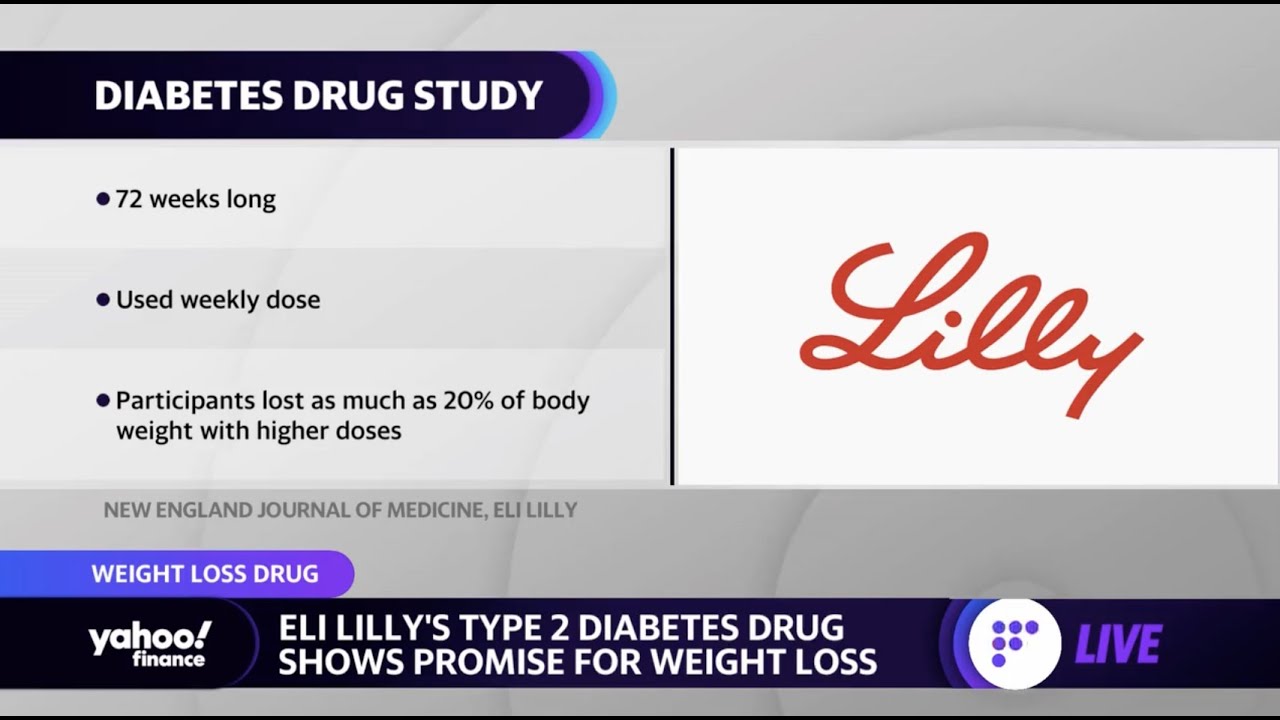When we talk about weight loss in the world of pharmaceuticals, there are countless options—some more effective than others, some quicker fixes, and some that truly transform lives. Eli Lilly, a leader in the pharmaceutical industry, has entered this space with a groundbreaking drug that’s taken the weight loss world by storm: Zepbound.
Zepbound, known scientifically as tirzepatide, has garnered attention for its superior performance in clinical trials, surpassing the effectiveness of other well-known weight loss drugs like Wegovy (semaglutide). In fact, Zepbound has shown an average weight loss of 20.2% of body weight, compared to Wegovy’s 13.7%. This has sparked an incredible shift in how people are thinking about weight loss treatments. But the journey behind Eli Lilly’s weight loss breakthrough has been far from easy. The challenges, struggles, and eventual success are what make this story so powerful.

The Road to Zepbound: Eli Lilly’s Commitment to Health and Weight Loss
It wasn’t always clear that Eli Lilly would find success in the world of weight loss. The pharmaceutical giant, known for its contributions to the treatment of diseases like diabetes, faced significant challenges when it decided to explore weight loss treatments. The company began researching tirzepatide as part of its efforts to help those living with obesity, a condition that affects millions of people worldwide.
Dr. Mark Johnston, an expert in metabolic diseases and a key player in Eli Lilly’s development of Zepbound, explains the initial goal: “Our mission wasn’t just to create a weight loss drug—it was to address the broader health issues associated with obesity. We wanted a treatment that could help people lose weight, yes, but also improve their overall health, including reducing the risk of type 2 diabetes, heart disease, and other conditions.”
For years, Eli Lilly worked alongside various researchers and experts in obesity to understand how they could bring a solution to market that wasn’t just a quick fix but a long-term, sustainable option for weight loss.
How Zepbound Works: A Breakthrough in Weight Loss Science
Zepbound is a dual-action drug that works by mimicking two hormones in the body: glucagon-like peptide-1 (GLP-1) and glucose-dependent insulinotropic polypeptide (GIP). These hormones help regulate appetite, blood sugar, and fat metabolism. By activating the receptors for these hormones, Zepbound suppresses hunger, slows down the digestive process, and increases fat burning, all of which contribute to significant weight loss.
What makes Zepbound so effective, especially compared to other weight loss drugs like Wegovy, is the synergistic effect of the two hormones. The combination of GLP-1 and GIP helps optimize metabolism, leading to fat loss without the dreaded muscle loss that often accompanies other weight loss treatments.
“I was initially skeptical, as I think many people are when they hear about new weight loss drugs,” says James Morris, a clinical trial participant. “But after starting Zepbound, I saw changes in my body within a few weeks. It wasn’t just about losing weight—it was about feeling better. I wasn’t constantly hungry, and my energy levels were through the roof.”
James, who lost 50 pounds over 12 weeks, isn’t the only one who’s seen results. In clinical trials, Zepbound has helped patients lose up to 50 pounds on average, with some even losing as much as 26% of their body weight after 72 weeks of treatment. This is a breakthrough that is changing lives—and not just in terms of weight, but in terms of mental health, confidence, and overall quality of life.
The Emotional Journey of Weight Loss: Stories from Real People
While the science behind Zepbound is impressive, the emotional and mental transformation it offers is just as powerful. Many participants in clinical trials have shared their experiences with the drug, describing not only the physical changes but the emotional shifts they’ve experienced as well.
Samantha, a 38-year-old teacher, began her journey with Zepbound after years of struggling with obesity. “I’d tried everything: diets, exercise, you name it. But I could never stick with it. Zepbound gave me that sense of control I had been missing. I wasn’t fighting hunger anymore, and I had the energy to go to the gym and actually enjoy my workouts. Losing weight felt like winning a battle that I had been fighting for years.”
Her transformation has been remarkable—30 pounds lighter in just six months, but it’s the emotional and psychological changes that have made the biggest impact. “For the first time in my life, I feel like I’m in control of my health. Zepbound didn’t just help me lose weight—it helped me reclaim my life.”
The mental health benefits of Zepbound are often overlooked, but they are a crucial part of the equation. By suppressing hunger and stabilizing blood sugar levels, Zepbound helps prevent the mood swings, irritability, and cravings that often come with traditional weight loss diets.

The Road Ahead: Eli Lilly’s Continued Efforts in Obesity Treatment
Eli Lilly’s breakthrough with Zepbound is just the beginning. The company continues to research and develop treatments for obesity, aiming to help even more people lose weight and improve their overall health. The success of Zepbound has led to a surge in demand, and Lilly is committed to making the drug more accessible to patients worldwide.
As part of this effort, Eli Lilly has made Zepbound available through direct-to-consumer channels, enabling people to easily access the medication without needing to go through traditional healthcare systems. This move has been welcomed by many, particularly those who previously found it difficult to get the help they needed for obesity.
Moreover, Eli Lilly is exploring other weight loss drugs, including retatrutide, which is still in the testing phase but shows promise in achieving even greater weight loss results. If retatrutide is successful, it could become a next-generation treatment for obesity, offering even more options for patients who struggle with their weight.
What Sets Zepbound Apart: A New Era in Weight Loss Drugs
As we look at the current landscape of weight loss drugs, Zepbound stands out for several reasons:
- Dual-action formula: The combination of GLP-1 and GIP results in a more effective weight loss treatment with fewer side effects.
- Long-term results: Patients can lose up to 26% of their body weight over time with continued use.
- Mental health benefits: Zepbound doesn’t just help with weight loss—it improves mood, reduces cravings, and helps prevent the emotional rollercoaster often associated with dieting.
- Accessibility: With direct-to-consumer availability, Zepbound is easier to access for patients who need it most.
Is Zepbound the Right Choice for You?
If you’ve struggled with weight loss and have tried countless diets and exercise plans, Zepbound might be the answer you’ve been looking for. While it’s important to consult with a healthcare provider to see if the drug is right for you, the positive results seen in clinical trials and by real patients make it an option worth considering.
James, who lost 50 pounds on Zepbound, sums it up best: “Zepbound didn’t just change my body—it changed my entire life. I have more energy, I’m happier, and I feel like I’m in control again.”
FAQs:
-
What is Eli Lilly’s weight loss drug?
Eli Lilly’s weight loss drug is Zepbound (tirzepatide), a dual-action drug that mimics hormones to suppress appetite and increase fat burning. -
How much weight can I lose with Zepbound?
Clinical trials show that patients can lose up to 20.2% of their body weight, with some individuals losing 50 pounds or more. -
Are there any side effects of Zepbound?
As with any medication, Zepbound may have side effects, including nausea, vomiting, and diarrhea. It’s important to consult with a doctor before starting the medication. -
How long does it take to see results with Zepbound?
Many patients see noticeable changes within 3-6 months of starting the medication. -
Where can I get Zepbound?
Zepbound is available through direct-to-consumer channels, making it more accessible for patients who need it.